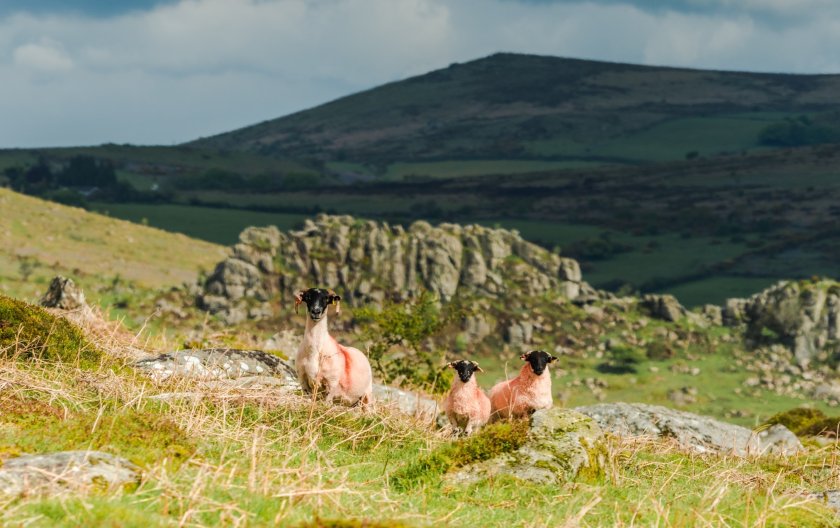Independent review calls for complete overhaul of policy on Dartmoor

An independent review into grazing and management of protected sites Dartmoor has called for a complete overhaul of policy and practice.
The report, undertaken by David Fursdon and released today (13 December), paints a damning picture of the impact of past policy and practice on the moor.
It determines that Natural England ‘has not responded successfully’ to the challenges of working within Dartmoor.
In April, Defra agreed to hold an independent inquiry into controversial proposals to reduce grazing levels on Dartmoor.
But changing the balance of grazing and removing sheep has reduced biodiversity in the upland area, Mr Fursdon's report warns.
It calls for reform of the governance of the various bodies with statutory responsibility for the oversight of Dartmoor.
The Tenant Farmers Association (TFA) said it 'fully endorses' the report, adding that the review group had "clearly got to grips with the huge issues on Dartmoor".
"It is vital now that we do not lose traction and we look to Defra to pick up the challenges laid out in this review immediately," said chief executive, George Dunn.
"Immediate action must be taken to abandon failing policies which focus only on reducing grazing numbers."
TFA junior vice chair and Dartmoor farmer, Helen Radmore said a shared vision which respected all those with rights and responsibilities would be the only way forward.
She added: “For the first time in a long time it feels like those of us who live and work on Dartmoor have been listened to properly.
"The ‘us and them’ approach that has been perpetuated by Natural England has been called out by this report.
The review acknowledges benefits of the diversity of livestock species and breeds kept on the moor, and the ways that native breeds contribute to the delivery of numerous benefits.
It also calls for an overarching agri-environment scheme, or a small number of closely integrated and coordinated schemes, that are based on the proposed plan for Dartmoor.
Increasing Natural England staffing resource and the creation of partnerships to help rebuild trust and confidence on the moor is also needed, the report says.
Rare Breeds Survival Trust chief executive, Christopher Price, welcomed the review: "It clearly recognises that current governance and management practices are not working either for nature or farming and so need to change.
“The challenge for government going forward is to ensure it has the appropriate range of regulations and incentives in place, especially through ELM, to ensure that the right breeds are being kept in the right places at the right times."
Mr Fursdon, chair of the review, said: “This is a time for those involved with Dartmoor to come together in the face of climate change and biodiversity loss to protect and enhance nature on the moor.
"Commoners have a vital role to play in delivering the management and grazing that contributes to this, as do those working to re-wet the degraded peatland.
“We are concerned that the processes around monitoring and evaluation of protected sites are too opaque for all of those who are involved in ensuring their success.
"We have proposed a series of changes to ways of working for the commoners, Natural England, the RPA and others, including taking decisions with a much greater clarity and transparency based on evidence and collaborative working.”








